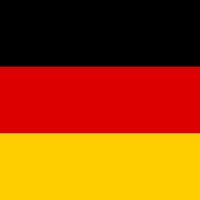German balance of payments in June 2022
Clear surplus in current account again
Germany’s current account posted a surplus of €16.2 billion in June 2022, meaning that the result was clearly positive again following the slight deficit of €0.4 billion in the previous month. This was primarily caused by the sharp shift in invisible current transactions, which comprise services as well as primary and secondary income. There was also a higher surplus in goods trading.
In the reporting month, the surplus in the goods account expanded by €4.8 billion to €13.9 billion because receipts rose and expenditure fell.
Invisible current transactions shifted from a deficit of €9.5 billion in May into a surplus of €2.3 billion in June. This was attributable to net receipts of €11.5 billion in primary income, following net expenditure in May. The main reason for this was the countermovement in dividend payments to non-residents from portfolio investment, which had risen considerably in the previous month, as is usual in May. The associated decline in tax payments from non-residents dampened government revenue from current taxes on income and wealth. This contributed significantly to the deficit in the secondary income account growing by €4.8 billion to €5.9 billion. In addition, the deficit in the services account widened by €0.8 billion to €3.4 billion. Expenditure rose more strongly than receipts, mainly attributable to the usual increase in travel expenditure at this time of year.
Portfolio investment sees net capital exports
In June 2022, financial markets were influenced by rising inflation figures and growing economic concerns. Germany’s cross-border portfolio investment generated net capital exports of €1.8 billion (May: €4.2 billion). Domestic investors added €6.9 billion worth of securities issued by non-residents to their portfolios on balance. On balance, they purchased exclusively foreign bonds (€10.5 billion), while parting with shares (€2.2 billion) and mutual fund shares (€1.5 billion). Non-resident investors acquired German securities to the tune of €5.1 billion net. They bought money market paper (€7.5 billion) and mutual fund shares (€0.5 billion), whilst offloading German shares (€1.6 billion) and bonds (€1.3 billion).
In June, transactions in financial derivatives recorded outflows (€7.4 billion).
Direct investment generated net capital exports of €8.5 billion in the reporting month (May: €16.8 billion). Domestic enterprises injected their affiliates abroad with direct investment funds totalling €16.3 billion, boosting their equity capital by €9.8 billion. Furthermore, they granted additional loans to affiliates abroad (€6.5 billion). Trade credits played an important role in this regard. Conversely, non-resident enterprises stepped up their direct investment in Germany by €7.7 billion and augmented their equity capital by €2.1 billion. The volume of intra-group loans issued to business units in Germany from abroad also rose (€5.7 billion), with foreign enterprises mainly issuing trade credits.
Other statistically recorded investment – which comprises loans and trade credits (where these do not constitute direct investment), bank deposits and other investments – registered net capital exports amounting to €27.7 billion in June (following net capital imports of €21.1 billion in May). Monetary financial institutions (excluding the Bundesbank) recorded net capital exports (€2.1 billion). By contrast, inflows of funds from other investment were recorded by enterprises and households (€8.1 billion) and general government (€4.7 billion). The Bundesbank’s net external claims went up by €38.4 billion. Its TARGET2 claims rose by €56.8 billion. At the same time, the Bundesbank’s external liabilities also increased significantly, as non-euro area residents topped up their deposits with the Bundesbank.
The Bundesbank’s reserve assets grew – at transaction values – by €0.4 billion in June.



















































First, please LoginComment After ~